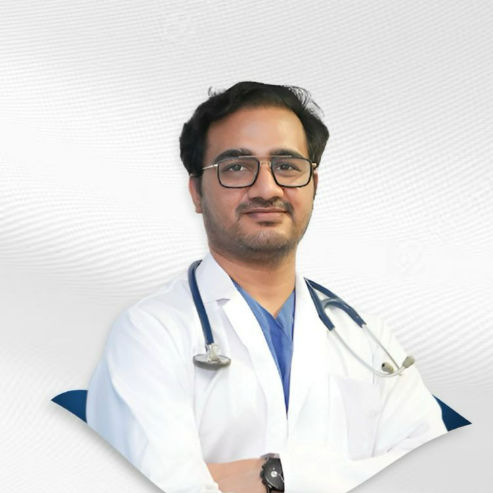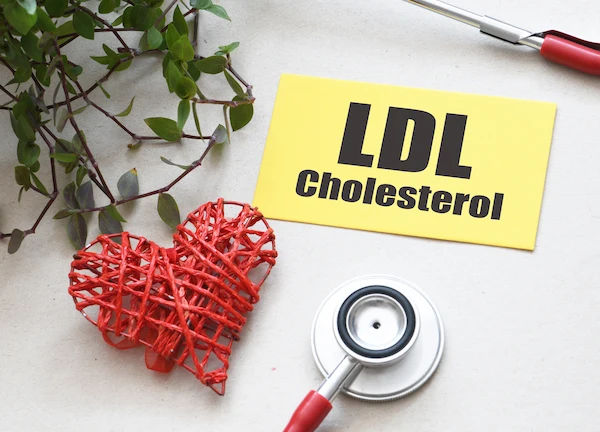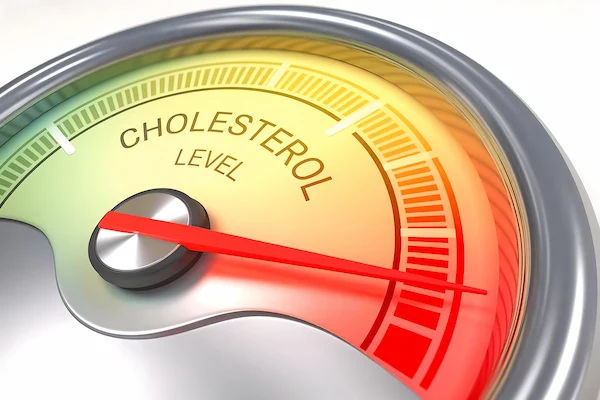LDL Cholesterol: Understanding Levels and Management
Know about LDL cholesterol, its role in heart health, and what your levels mean. Discover effective ways to manage and lower LDL through diet, lifestyle changes, and medical treatment when necessary.

Written by Dr. Dhankecha Mayank Dineshbhai
Reviewed by Dr. Shaik Abdul Kalam MD (Physician)
Last updated on 25th Aug, 2025

Introduction
Cholesterol is a waxy, fat-like substance found in your blood. While your body needs cholesterol to build healthy cells, too much of the wrong kind can lead to serious health problems. Low-Density Lipoprotein (LDL) cholesterol, often called "bad cholesterol," can build up in your arteries, increasing the risk of heart disease and stroke.
Understanding your LDL cholesterol levels and how to manage them is crucial for maintaining good heart health. This article will help you learn what LDL cholesterol is, why it matters, and how you can keep it under control.
What is LDL Cholesterol?
Cholesterol travels through your blood attached to proteins called lipoproteins. LDL (Low-Density Lipoprotein) is often referred to as "bad" cholesterol because high levels can lead to plaque buildup in your arteries, narrowing them and increasing the risk of heart disease and stroke.
On the other hand, HDL (High-Density Lipoprotein) is known as "good" cholesterol because it helps remove LDL from your bloodstream.
Consult a Top Heart Specialist for the best advice
Why Should You Care About LDL Cholesterol?
High LDL cholesterol doesn’t usually cause symptoms, which is why it’s often called a "silent" health issue. Over time, excess LDL can lead to:
- Atherosclerosis (hardening and narrowing of arteries)
- Heart disease (including heart attacks)
- Stroke (due to blocked blood flow to the brain)
- Peripheral artery disease (reduced blood flow to limbs)
The good news? You can manage LDL cholesterol with lifestyle changes and, if needed, medications.
What Are Healthy LDL Cholesterol Levels?
Your LDL cholesterol levels are measured in milligrams per deciliter (mg/dL) of blood. Here’s a general guideline:
Your doctor may set different targets based on your overall health, age, and risk factors like diabetes or high blood pressure.
What Causes High LDL Cholesterol?
Several factors contribute to high LDL cholesterol, including:
1. Unhealthy Diet
- Eating too much saturated fat (found in red meat, full-fat dairy, fried foods)
- Consuming trans fats (found in processed and packaged snacks)
- High intake of refined sugars and carbohydrates
2. Lack of Exercise
- Physical inactivity lowers HDL (good cholesterol) and increases LDL.
3. Obesity
- Excess weight is linked to higher LDL and lower HDL levels.
4. Smoking
- Smoking damages blood vessels and lowers HDL cholesterol.
5. Genetics (Family History)
- Some people inherit genes that cause high cholesterol (familial hypercholesterolemia).
6. Age & Gender
- Cholesterol levels tend to rise with age. Before menopause, women usually have lower LDL than men, but after menopause, their LDL levels often increase.
7. Medical Conditions
- Diabetes
- Hypothyroidism (underactive thyroid)
- Kidney disease
How Can You Lower LDL Cholesterol?
The good news is that you can take steps to manage your LDL cholesterol effectively.
1. Eat a Heart-Healthy Diet
- Choose healthy fats: Replace saturated fats with unsaturated fats (olive oil, avocados, nuts, fatty fish like salmon).
- Increase fiber intake: Oats, beans, fruits, and vegetables help lower LDL.
- Limit processed foods: Avoid trans fats and excessive sugar.
- Add plant sterols: Found in fortified foods like certain margarines and orange juice, they help block cholesterol absorption.
2. Exercise Regularly
- Aim for at least 150 minutes of moderate exercise (like brisk walking) per week.
- Strength training (twice a week) can also help improve cholesterol levels.
3. Maintain a Healthy Weight
- Losing even 5-10% of your body weight can improve cholesterol levels.
4. Quit Smoking
- Stopping smoking improves HDL levels and overall heart health.
5. Limit Alcohol
- Excessive alcohol can raise cholesterol and blood pressure. Stick to moderate drinking (1 drink/day for women, 2 for men).
6. Manage Stress
- Chronic stress may contribute to high cholesterol. Try relaxation techniques like yoga, meditation, or deep breathing.
7. Medications (If Needed)
If lifestyle changes aren’t enough, your doctor may prescribe:
- Statins (most common cholesterol-lowering drugs)
- Ezetimibe (reduces cholesterol absorption)
- PCSK9 inhibitors (for very high cholesterol)
Always take medications as prescribed and discuss any side effects with your doctor.
When Should You Get Tested?
Since high LDL cholesterol has no symptoms, regular screening is essential.
- Adults 20+: Get tested every 4-6 years.
- High-risk individuals (diabetes, heart disease, family history): More frequent testing may be needed.
Get Your Health Assessed
Final Thoughts
High LDL cholesterol is a major risk factor for heart disease, but it’s manageable with the right lifestyle changes and medical care. By eating well, staying active, avoiding smoking, and getting regular check-ups, you can keep your cholesterol in check and protect your heart.
Consult a Top Heart Specialist for the best advice
Consult a Top Heart Specialist for the best advice

Dr. Tripti Deb
Cardiologist
40 Years • MBBS, MD, DM, FACC, FESC
Hyderabad
Apollo Hospitals Jubilee Hills, Hyderabad

Dr. Anand Ravi
General Physician
2 Years • MBBS
Bengaluru
PRESTIGE SHANTHINIKETAN - SOCIETY CLINIC, Bengaluru

Dr. Ramalinga Reddy
General Physician
5 Years • MBBS MD General medicine
Bengaluru
PRESTIGE SHANTHINIKETAN - SOCIETY CLINIC, Bengaluru

Dr. Janjirala Seshivardhan
Cardiologist
7 Years • MBBS,DNB(GM),DM(Cardiology)
Manikonda Jagir
Apollo Clinic, Manikonda, Manikonda Jagir

Dr. Sumanta Chatterjee
Cardiologist
12 Years • MBBS,MD General Medicine,DM Cardiology
Kolkata
HealthYou Speciality Clinic & Diagnostics., Kolkata
(25+ Patients)
Consult a Top Heart Specialist for the best advice

Dr. Tripti Deb
Cardiologist
40 Years • MBBS, MD, DM, FACC, FESC
Hyderabad
Apollo Hospitals Jubilee Hills, Hyderabad

Dr. Anand Ravi
General Physician
2 Years • MBBS
Bengaluru
PRESTIGE SHANTHINIKETAN - SOCIETY CLINIC, Bengaluru

Dr. Ramalinga Reddy
General Physician
5 Years • MBBS MD General medicine
Bengaluru
PRESTIGE SHANTHINIKETAN - SOCIETY CLINIC, Bengaluru

Dr. Janjirala Seshivardhan
Cardiologist
7 Years • MBBS,DNB(GM),DM(Cardiology)
Manikonda Jagir
Apollo Clinic, Manikonda, Manikonda Jagir

Dr. Sumanta Chatterjee
Cardiologist
12 Years • MBBS,MD General Medicine,DM Cardiology
Kolkata
HealthYou Speciality Clinic & Diagnostics., Kolkata
(25+ Patients)


 (1).webp)

